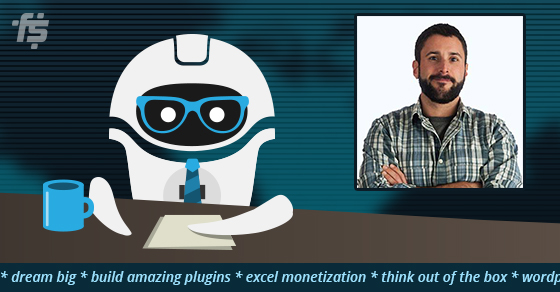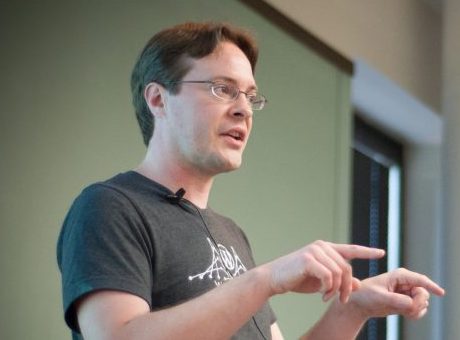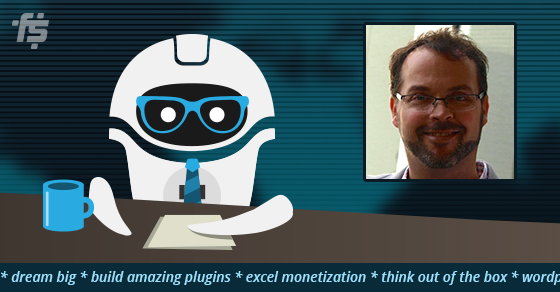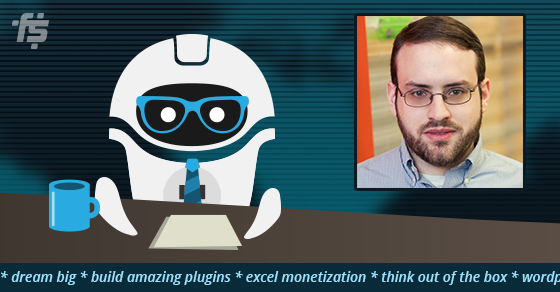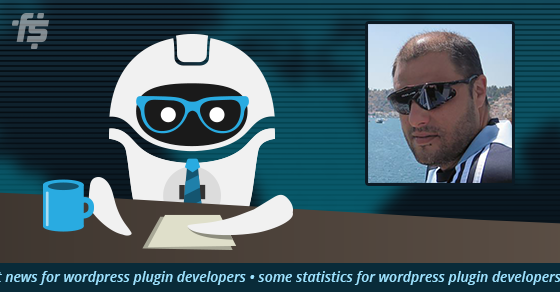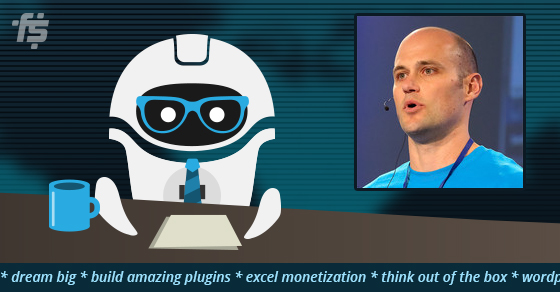|
|
When I started working on Freemius, one of the first things I did was conduct a market research to see how much the WordPress community cares about business. We all know that WordPress has a huge market share, but the question is how many developers care about making money off of their open-source plugins & themes. That’s how I first stumbled upon the Matt Report.
Besides the fact that Matt was the first podcast I ever listened to (don’t judge – I work from home), Matt’s business-focused podcast was one of the signals that the market is maturing.
On March 2015, I sent a cold email to Matt trying to get an interview on his podcast since there were LOTS of similarities between what we cover on our blog, and the preferred topics covered on Matt’s podcast. I got no response because Matt decided to ignore my email (his loss). About a year after that, Matt and I met in several different WordPress events, had some deep conversations about the unique WordPress business ecosystem over a beer(s), and became good friends. As much as he is outgoing, Matt is one of the most humble people I ever met, and I highly appreciate his opinion.
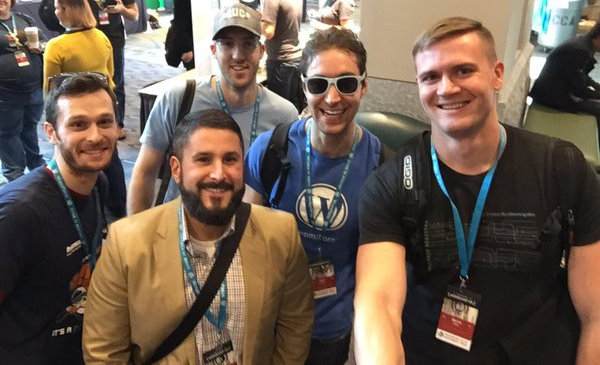
For anyone who doesn’t know Matt, he runs a boutique WordPress agency with his father called Slocum Studio. They also sell a WordPress builder plugin called Conductor, and obviously he runs the famous Matt Report podcast. Matt has been giving talks in many WordCamps, and business focused events like PrestigeConf (coming up in a few days on May 24-25) and PressNomics. And with that long intro – let’s get started.
Matt, I’m super-excited to have you as an interviewee on Freemius! Even more excited that I have the opportunity to interview you first. Since you are so opinionated and are not ashamed to share your thoughts on the WordPress ecosystem, I’m going ask you some tough questions. Before we go there, how does it feel on the other side – as an interviewee?
I always enjoy being on the other side of the table, it gives me the chance to not have to think about questions to come up with!
When we met in WordCamp Miami, you told me your background story which I found very fascinating. Can you tell us how a car sales guy turned into a WordPress business owner?
I grew up in the car business that my grandfather, my father’s father, started back in the 70’s. I started young, somewhere around 10 – 12 years old, cleaning up any trash and landscaping around the lot. Long story short, I held almost every title in the company: from car washer to parts delivery, to salesperson and then ended on internet sales manager. Needless to say, I learned a ton about customer relationships, sales, and working with a team.
I went to school for computer networking and landed an internship at a local Internet Service Provider. I had always been into making my own Linux servers growing up, which meant I would dabble in a lot of installable open source applications, so this was a natural attraction to me. I started the ISP’s first cluster of cPanel shared hosting (this is early 2000’s) and that was my first exposure to open source apps.
At the tailend of being the product manager at that company, we had acquired a small web development shop that primarily used Drupal — which we found super-difficult. The designer had some experience with WordPress, so we started to invest more time and learning into that. The first theme I ever used was The Standard Theme by the folks at former 8bit.
Meanwhile, we were exiting the car business, and my father was really into professional photography.  One thing lead to another, he photographed some products for a client that wanted a website, and I helped build it. After we sold the dealership, we saw some of the work we did with a handful of small clients and we decided to give a run at building a digital agency.
One thing lead to another, he photographed some products for a client that wanted a website, and I helped build it. After we sold the dealership, we saw some of the work we did with a handful of small clients and we decided to give a run at building a digital agency.
The rest is history as they say.
Do you feel that growing in the car sales industry helps you in the WordPress ecosystem?
Absolutely. It taught me that you can’t just sit back and wait for the sale, you need to go out and find your customer.
There *was* a gold rush in the WordPress space a few years ago, but now, it’s going to take WordPress companies a lot more hard work to get it done. Sure, you’ll come across a few Unicorn products every now and again, but the majority of us need to put in the effort other product companies are afraid of.
That’s also not to say there won’t be another gold rush in our ecosystem. If you’re constantly trying something new, failing a lot, and generally talking to customers to gain feedback — you’ll be in a great position.
What do you miss the most in the car sales comparing to WordPress?
The car industry was easier. 🙂
In fact, your partner is your dad – how is that working out (or not)?
Ha! With any partnership, there’s going to be ups and downs. The worst is when you have 3 or more and then people start choosing sides against the others – that sucks.
That said, our greatest strengths are our biggest differences. He handles a lot of our small business customers, and I handle the larger more technical clients. Both of us bring a different perspective to the table when it comes to working with clients or helping shape products.
You are running an agency and a product in parallel, can you tell us how is that working for you? How much time & resources do you guys spend on product vs. services? What are you more passionate about?
Currently, that’s the hardest part in this business. Learning to split the time and being able to afford to split the time are vastly different. The biggest mindset change/advice I received from Garrett Moon of Co-schedule: Start the week off talking/thinking about products with the team. Get into the mindset of tackling that challenge first, because it’s the most exciting.
Also, our product is something we use within our client work, so investing a little R&D and getting user feedback is easier to come by on a daily basis. Sure, I desire to be in a position where most of our revenue comes from products, but that also means we won’t have our boots on the ground with customers interacting with our software day-to-day. I think the balance certainly helps us improve the way we are doing things with Conductor and our themes.
What are the top three challenges in running a commercial WordPress plugin?
For us: time, finding the right customer, and marketing/promoting to that customer.
In multiple occasions, you shared your frustration that the WordPress’ leadership makes life harder for plugin business owners. In your recent talk at PressNomics, you mentioned: “Why can’t we sell through the repo?”. I would love to get your thoughts on that.
How much time do we have? 🙂
I probably expanded upon it best in this thread.
I see two major issues:
1. Now: Where can you get great software for WordPress that’s coded well and is supported by a sustainable company?
2. Future: The fragmentation of WordPress. i.e. Is this application/website WordPress?
As it stands now, most users and professional consultants alike really don’t like purchasing software from super-popular marketplaces. There’s quality concerns, support concerns, and only the rich get richer in that space.
I am well aware of the goals and the fundamentals .org is built upon, and while I joke about selling on .org, what I really mean is some verification process for author’s to showcase “they do it right.” There are much smarter people than me that can solve for that because I realize a marketplace on .org will most likely never happen. However, I see this as an opportunity for .org/WordPress leaders/Automattic/Matt to create a haven where end users can get software they can trust.
This will also solve for any future fragmentation of the core software itself. Inevitably huge hosting companies are going to fork the experience of WordPress to tailor it to their own customers, leading lock-in and a user experience that’s different than if they downloaded it from WordPress.org. Again, if I can get “my WordPress” from “WordPress” I’ll be a happier customer.
We recently ran an experiment on our own plugin which proved an increase in our bottom line by adding a monthly subscription. What do you think about billing monthly for WordPress plugins? Do you think it will be adopted by the WordPress ecosystem like in SaaS, or is the WordPress plugins world stuck with annual and lifetime offerings forever?
I think if billing monthly for your plugin makes sense, then do it. I think prices as a whole need to be raised because even small plugin companies like my own offer tremendous value in terms of supporting the end user.
I know that you have recently started to mentor in a startups accelerator in the Greater Boston area. As a TechStars Boston alum, I highly value mentorship from the entrepreneur’s side. Can you share your experience being on the side that’s supposed to have the answers and provide advice?
It’s an amazing way to give back, but sometimes I wonder if the accelerator should be paying me — haha — I’m just kidding!
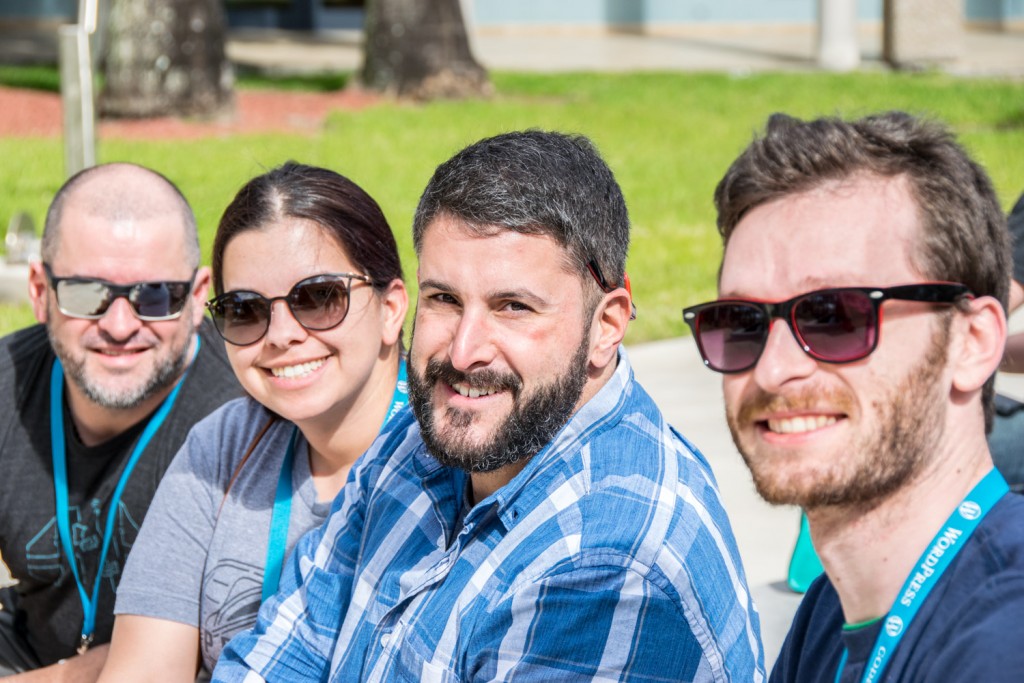
I started a website a few years back called wpmentor.org and embarrassingly, I haven’t had a chance to really invest my time. I had “hoped” it would have taken off on its own, but again, everything needs fuel to skyrocket.
I see a lot of WordPress people fizzle out because they don’t realize how much work and effort running a business takes. They are too caught up in trading time for dollars and “tinkering” with WordPress and not the bigger picture. I hope that one day I can rekindle that effort.
My background is startups, and I’m used to the whole fundraising process since money is just a commodity for a bigger goal, means to get to an end quicker. Looking at the WordPress business ecosystem, 99% of the businesses are bootstrapped. Besides Automattic & WPEngine, I think there were only two additional companies who raised some angel money. Why do you think that is happening? Do you believe things will change in the future?
Many of the bootstrapped plugin businesses think too small. Others just want a lifestyle business (and that’s fine!) so growth really isn’t on the radar. If I were interviewing you, I’d flip the question and ask, why do you want funding?
Is funding more attractive to you than solving your customer’s issues with your product? Once you get funded, will you have the same passion and scrappy desire to build this?
I think Rainmaker (formerly Copyblogger) is an amazing example of bootstrapped big business. $12MM last year or so Brian Gardner mentioned on his recent Mixergy interview. He’s now just looking to get outside investment to grow further. I mentioned Co-Schedule earlier (a former guest on my show) and they had raised an angel round and then a Series-A and recently got acquired.
It’s still a bit of the Wild West out here, and I think we’ll see more companies mature over time.
Speaking of entrepreneurship, you interviewed over 50 WordPress business owners on the Matt Report, what was your most memorable interview and why?
(Probably over 100, but who’s counting!) My favorite was actually someone who isn’t even in the WordPress space, Jose Caballer.
He has a product called Core and it helps web designers run a better agency by understanding the discovery and management processes of a web project. What he may not realize is that his process solves for product building, team building, and ANY business building — it’s just that good.
He actually made me change the name of the interview title because his own portfolio clients were finding it and learning how he charges them. This also happened to Brad Williams of WebDevStudio too 🙂
I’ll use your question from the interview you ran with Matt Mullenweg last year on Matt Report, “what’s the biggest lesson you learned over these last 7 years and not only in the WordPress side, as an individual, as a person, as an entrepreneur… what’s the biggest lesson so far?”
Where you are today is not where you’ll be tomorrow, a month from now, a year from now as long as you keep trying. We all want wins — right now. I’ve failed a lot and continue to do so. I think a lot of people fail and then give up or are even afraid to admit it and keep plugging away.
It’s like when people say raise your rates and then you do. You raise them by a few hundred or a few thousand. Then you start getting better clients and a year later you realize you could have raised them by 10’s of thousands and you would have landed those same clients!
We all possess the value and know-how, but we are at odds with demonstrating that to the world. It’s our own self-doubt that holds us back.
What was your biggest mistake while running Conductor plugin?
For the record, I’m still running it. 🙂
The biggest issue is, even though I ran it through a focus group, had a founding advisory board, and demo’d to 35 people one-on-one, I didn’t market to the right audience out of the gate. I was also making a very opinionated piece of software, where in the market of builders, all the options and the kitchen sink wins.
While I don’t think we’ll add all the bloat and overhead of other plugins, we’re certainly going to reposition marketing — when we find time.
What is the most important piece of business advice you can give to plugin & theme developers?
Re-read the answer I gave to the Mullenweg question.
Then focus less on all of the features you want in your product and make sure you’re absolutely serving and solving something for a client. Then forget features again and focus more on onboarding customers to your product. Lastly, stop focusing on features and make sure you’re marketing consistently and staying in contact with your customers.
Last step: you can get back to features now.
If you had a time machine that would let you travel back to 2008, before starting your WordPress business. Would you still go WordPress? What would you do differently?
Absolutely, I would still invest in WordPress. Biggest advice I’d give myself is to focus in on one customer vertical and become a master of their needs. Learn how to service them, speak with them, and learn their sales process – as to say – learn how they buy.
I’d also not rush into building a team like I did. While my founding team was great, it was a massive cash flow drain in the beginning. Don’t hire until you absolutely must and you can recognize it will move the needle.
